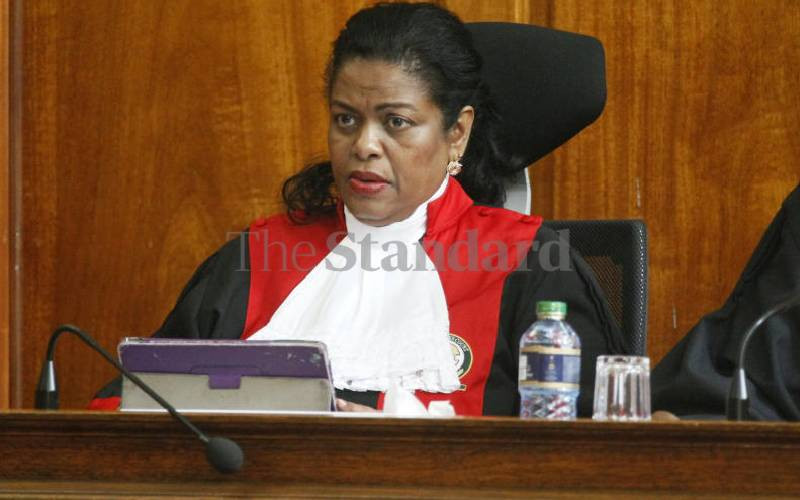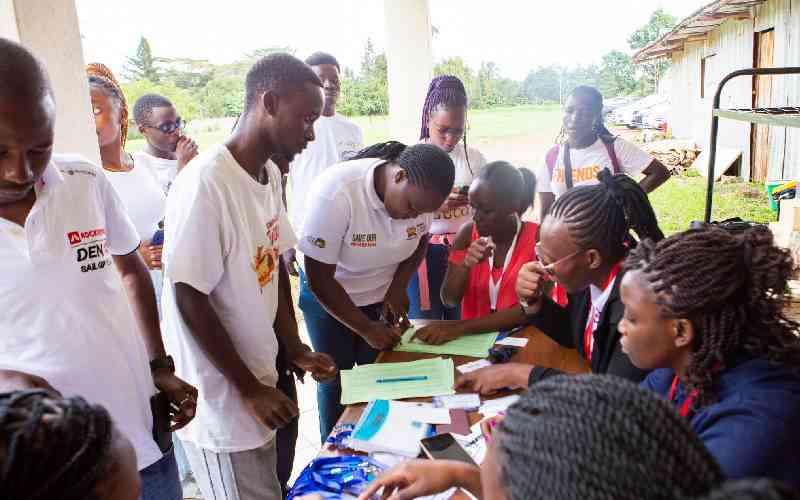I have no idea and will probably never know with certainty whether or not Justice Philip Tunoi was bribed in the Waititu petition. In any event when it comes to corruption allegations in the media, my default instinct is to be suspicious. I have lived in this country long enough to know the real purveyors of corruption have the cash to ensure their names never get to any media. I therefore prefer to let the due process take its course and await legitimate conclusions.
But I digress. What I prefer to discuss are the alarming inconsistencies that the scandal discloses among us Kenyans in this so-called fight against corruption. The first is our focus, patently exhibited by the media, on the judge and the court, completely ignoring other alleged active participants in the scandal. Other than the affidavit swearer, there are at least two other major actors in the saga that deserve some attention; Governor Evans Kidero and the lawyers who allegedly facilitated the scheme. While demands for investigation or “stepping aside” have focused on the judge, nobody is pushing for action against these other purported actors. We haven’t seen the ever-vociferous Ethics and Anti-Corruption Commission demanding statements from other alleged participants, including carrying out its now famous house sweeps.
Granted, the expectations on the integrity of the Supreme Court are naturally higher, but we must not excuse other parties, unless the motives for the bribery allegations and the hoopla around them are not about fighting corruption.
Related to this inconsistency is the hypocrisy, especially by the CORD leadership, in their public statements on the matter. In the last six months, CORD elevated the “stepping aside doctrine” to almost biblical proportions. In CORD’s oft-repeated views, once allegations are made against an institution or person, the only available option to “allow for credible investigations” is for those leading the institution to step aside. Sounds quite reasonable until you realise that this rule applies only to those that CORD finds inconvenient. It would be suicidal to hold one’s breath waiting for CORD stalwarts to move from town to town applying this doctrine and calling on major players in this saga to step to allow for credible investigations. The other hypocritical actor in the saga is the Law Society of Kenya. Some of its members are said to have been the facilitators of the scheme. I have not heard the LSK promise to investigate its members to ensure that they were not part of a criminal scheme contrary to its own ethical rules.
Yet everyone will tell you that judicial corruption is generally facilitated by learned friends, who can walk unsuspected into judge’s chambers and discuss “numbers” at some exclusive golf club. Neither has the LSK given leadership on defining the boundaries between lawyers’ legitimate roles as professionals merely carrying out client’s instructions and cases where lawyers actively engage in criminal conduct on matters corruption.
What of Kenyans? If you read social media and listen to conversations on radio talk shows it is clear that our views on the saga are generally defined by our politics. This is not unique to the Tunoi issue. During the Eurobond saga, I was amazed to see even people whose intellect I generally respect believing such preposterous stuff like that the Federal Reserve Bank of the US, the equivalent of the Central Bank of Kenya was the place where the Eurobond proceeds disappeared with fraudsters. As the youngsters in my house would ask; Seriously? On the other side of the political platform, there were “Jubilants” who were not willing to make the legitimate demand that the Treasury and all Ministries explain how the Eurobond proceeds were used once they got to Kenya despite the liability that this debt is to all of us.
It is no wonder that our youth have become cynical, and as disclosed by recent polls, have no qualms about participating in corruption; they know that deep down we are not really committed to eradicating it.
They know that our complaints are because we lack opportunity to partake and we see others consuming. Until we can have a non finger-pointing honest national conversation on this cancer, we will continue to wax lyrical about it without any movement towards its eradication.
 The Standard Group Plc is a
multi-media organization with investments in media platforms spanning newspaper
print operations, television, radio broadcasting, digital and online services. The
Standard Group is recognized as a leading multi-media house in Kenya with a key
influence in matters of national and international interest.
The Standard Group Plc is a
multi-media organization with investments in media platforms spanning newspaper
print operations, television, radio broadcasting, digital and online services. The
Standard Group is recognized as a leading multi-media house in Kenya with a key
influence in matters of national and international interest.
 The Standard Group Plc is a
multi-media organization with investments in media platforms spanning newspaper
print operations, television, radio broadcasting, digital and online services. The
Standard Group is recognized as a leading multi-media house in Kenya with a key
influence in matters of national and international interest.
The Standard Group Plc is a
multi-media organization with investments in media platforms spanning newspaper
print operations, television, radio broadcasting, digital and online services. The
Standard Group is recognized as a leading multi-media house in Kenya with a key
influence in matters of national and international interest.








